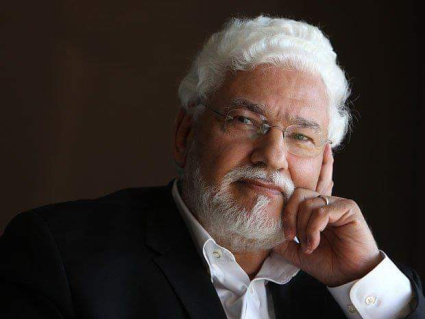February 6, 2024
Yemen in the news: A Very Short Introduction

1. I have visited more than 50 countries, including Yemen, whose historic buildings in the cities of Sana’a, Taiz and Aden boast some of the world’s most beautiful architecture. And the beautiful landscape of Yemen is not matched anywhere in the world.
2. Did you know that Yemenis are the original Arabs? Yemen’s civilization goes back some 3,000 years. Ancient Yemenis were among the first to build dams and reservoirs to store rainwater for irrigation. They were also among the first to rule using democratic principles. Queen Bilqis (Queen of Sheba) consulted her government ministers for all major decisions.
3. The word Yemen in the Arabic language means “south” which refers to the country’s location at the extreme southern end of the Arabian Peninsula. Its long coastline includes the Red Sea, the Gulf of Aden, the Indian Ocean, and the Strait of Bab-el-Mandeb (also known as the Gate of Tears) between Yemen and the Horn of Africa.
4. For its geographical size, Yemen is rich in natural resources, including fossil fuels and gypsum. As early as the third millennium BCE, Yemeni farmers learned to cultivate two crops a year, producing sorghum in summer and wheat and barley in winter. Yemenis were trading valuable commodities such as frankincense and myrrh more than 2,000 years before the arrival of Islam. They also traded cereal grains and other products with ancient Egypt, Abyssinia, Palestine, and Greece.
5. Greek merchants called Yemen “Arabia Felix”—felix means happiness—due to its agricultural prosperity. Many crops were successfully grown there because the country is located south of the vast and infertile Rub’ al-Khali desert.
6. Ancient Yemenis were always interested in culture and religion; they were among the first Arab civilizations and first in the world to embrace Judaism, Christianity and then Islam, which is the majority faith there today.
7. Coffee plants originated in Yemen and transported to Ethiopia. From the famous Port of Mokha near the modern city of Mocha, coffee was shipped to Abyssinia and many other countries of the Near East. Eventually Portuguese sailors took seed beans to Brazil, from which coffee culture spread throughout every place in the world with suitable growing conditions. But coffee lovers today still say that Yemen’s brew is among the best anywhere, and I agree.
8. Yemeni horticulturalists also discovered, cultivated, and widely exported khat, a medicinal plant whose leaves were chewed for centuries to treat anxiety and depression. It acts on the nervous system as both a stimulant and mild anesthetic. Khat is now banned in many countries thanks to Western pharmaceuticals replacing it with expensive medications.
9. From about 1700 through 1900, Yemen was part of the famed Omani Empire, which included the eastern coast of Africa, western Iran, western India, and all of the Persian Gulf countries. It had both naval and commercial fleets operating across the Indian Ocean from Indonesia and Malaysia to the eastern coast of Africa. The Omani Empire had three capital cities—Rustaq (1692–1792) Muscat (1792–1832), and Zanzibar (1832–1856). Zanzibar, located on a beautiful island of the same name where I have visited, is my favorite. A few years ago, I wrote a historical novel called Son of Zanzibar.
10. After the discovery of oil throughout much of the Arabian Peninsula, the Gulf countries focused on extraction industries and became very prosperous. Although Yemen also had some oil reserves, they were much smaller. Neighboring countries ignored it and Yemen declined economically.
11. In 1962, Yemenis revolted against the rule of King and Imam Muhammad al-Badr, replacing his Imamate with a republican government under military coup leader Abdullah as-Sallal, who was declared president of North Yemen. During the conflict, which lasted until 1970, the surrounding Gulf States opposed Yemen both politically and militarily, but Egypt supported the new Yemeni republic.
12. Between 1839 and 1967 the British had a presence and influence in Yemen, beginning with creating a protected zone around the port of Aden. In 1918 the northern Kingdom of Yemen gained independence from the Ottoman Empire, becoming the Republic of Yemen in 1962. The British did not withdraw from what became South Yemen until 1967. Although the British were largely responsible for separating northern and southern Yemen, they were never able to occupy the northern half of the country.
13. In 1990 North and South Yemen were finally reunited under President Abdullah Saleh. After the fall of Egyptian president Hosni Mubarak in 2011, however, Yemenis revolted against Saleh, who stepped down early in 2012 (in 2017 he was assassinated). After Saleh’s resignation, various factions struggled for power. In 2014-15, the Ansar Allah Group (AAG), took over the capital of Sana’a and expelled the government, whose leaders fled to Saudi Arabia and are currently sheltered in the city of Riyadh. The AAG is a political and military organization that emerged from Yemen in the 1990s and claims a pro-democracy progressive political platform.
14. Since the AAG takeover, the Saudi and Emirati armies, supported by the U.S., have waged a war of occupation on Yemen that has killed more than 20,000 Yemeni civilians and contributed to massive famine conditions throughout the country. The Americans, Saudis, and UAE (United Arab Emirates) have intentionally called the Ansar Allah Group “Houthis” after the family name of their leader, in efforts to denounce the organization as an extremist cult. However, the AAG is known to represent a significant portion of Yemeni citizens.
15. In 2023, Yemen’s military and government in Sana’a decided to support Palestine and declared their opposition to Israel’s war. The U.S., Britain, Saudi Arabia, and the UAE have condemned Yemen’s pro-Palestinian stand. Just as Egypt supported the Yemeni revolution in 1962, Iran supports the current Yemen government.
Dr. Mohamed Elmasry is Emeritus Professor of Computer Engineering at the University of Waterloo, Canada. He is a long-time observer, analyst and commentator on Arab world culture and politics.








